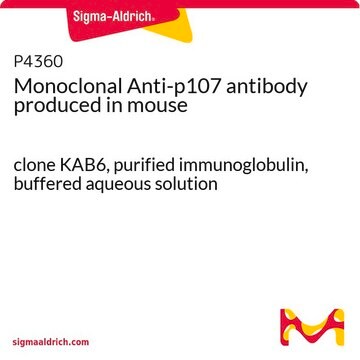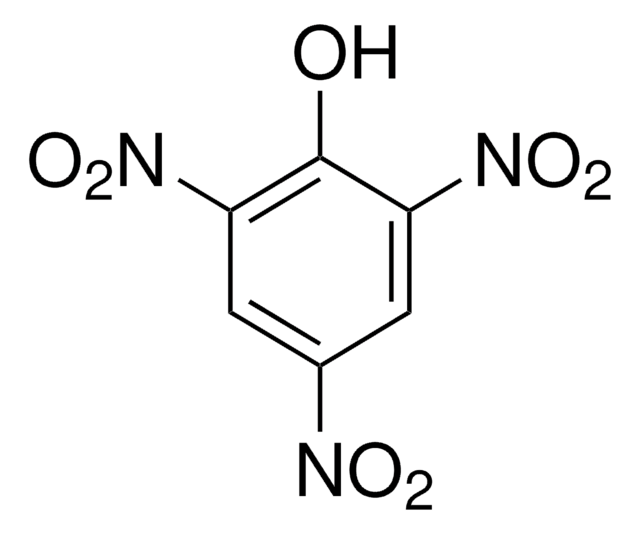P4485
Monoclonal Anti-p130 antibody produced in mouse
clone KAB40, purified immunoglobulin, buffered aqueous solution
Sign Into View Organizational & Contract Pricing
All Photos(1)
About This Item
conjugate:
unconjugated
application:
WB
clone:
KAB40, monoclonal
species reactivity:
human, monkey, mouse
citations:
1
technique(s):
western blot: 1:1,000 using human C33A cervical carcinoma cells
Recommended Products
biological source
mouse
Quality Level
conjugate
unconjugated
antibody form
purified immunoglobulin
antibody product type
primary antibodies
clone
KAB40, monoclonal
form
buffered aqueous solution
mol wt
antigen 130 kDa
species reactivity
human, monkey, mouse
technique(s)
western blot: 1:1,000 using human C33A cervical carcinoma cells
isotype
IgG1
UniProt accession no.
shipped in
dry ice
storage temp.
−20°C
Gene Information
human ... RBL2(5934)
mouse ... Rbl2(19651)
Immunogen
GST fusion protein of p130, N-terminus.
Physical form
Solution in 0.01 M phosphate buffered saline containing 0.08% sodium azide.
Disclaimer
Unless otherwise stated in our catalog or other company documentation accompanying the product(s), our products are intended for research use only and are not to be used for any other purpose, which includes but is not limited to, unauthorized commercial uses, in vitro diagnostic uses, ex vivo or in vivo therapeutic uses or any type of consumption or application to humans or animals.
Not finding the right product?
Try our Product Selector Tool.
Storage Class Code
10 - Combustible liquids
WGK
nwg
Flash Point(F)
Not applicable
Flash Point(C)
Not applicable
Choose from one of the most recent versions:
Already Own This Product?
Find documentation for the products that you have recently purchased in the Document Library.
C L Pang et al.
Oncogene, 33(31), 4039-4049 (2013-10-22)
High-risk human papillomaviruses are causative agents of cervical cancer. Viral protein E7 is required to establish and maintain the pro-oncogenic phenotype in infected cells, but the molecular mechanisms by which E7 promotes carcinogenesis are only partially understood. Our transcriptome analyses
Our team of scientists has experience in all areas of research including Life Science, Material Science, Chemical Synthesis, Chromatography, Analytical and many others.
Contact Technical Service






